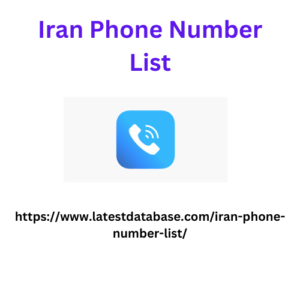Sales calls are a crucial part of the sales process, offering a direct line to potential clients and an opportunity to make a compelling case for your product or service. Having a well-structured script can make a significant difference in the success of these calls. This article explores strategies for creating an effective script for sales calls and provides examples to help you refine your approach.
The Importance of a Script for Sales Calls
Consistency and Confidence
A well-crafted script ensures consistency in your message and helps you stay on track during the call. It also boosts your confidence, as you have a clear roadmap to follow.
Preparation and Professionalism
Using a script shows that you are prepared and professional. It demonstrates to the prospect that you value their time and have invested effort in understanding their needs.
Improved Engagement
A script can help you ask the right questions and provide the right information, leading to better engagement with the prospect. It ensures that you cover all essential points and respond effectively to any objections or questions.
Key Components of an Effective Sales Call Script
Introduction
First Impressions Matter
Your introduction sets the tone for the entire call. It should be concise, engaging, and professional. Mention your name, your company, and the reason for your call.
Example:
“Hello [Prospect’s Name], this is [Your Name] from [Your Company]. How are you today? I’m reaching out because I believe we have a solution that can significantly improve [a specific aspect of their business].”
Building Rapport
Personal Connection
Building rapport helps create a connection with Iran Phone Number List the prospect. Mention something relevant about their business or industry to show that you’ve done your homework.
Example:
“I noticed that your company recently [mention a relevant event or achievement]. Congratulations on that! How has that been going for you?”
Identifying Needs
Asking the Right Questions
Understanding the prospect’s needs is crucial. Ask Australia Phone Number List open-ended questions that encourage them to share their challenges and goals.
Example:
“Can you tell me more about your current process for [a specific area]? What are some of the challenges you’re facing?”
Listening Actively
Active listening shows that you value the prospect’s input. It also helps you gather important information that you can use to tailor your pitch.
Presenting Your Solution
Highlighting Benefits
Focus on the benefits of your product or service and how it addresses the prospect’s specific needs. Use clear, compelling language.
Example:
“Based on what you’ve shared, our
can help you [specific benefit]. For instance, we’ve helped other companies in your industry achieve [specific results].”Handling Objections
Common Objections
Be prepared for common objections and have responses ready. Address concerns with confidence and provide evidence or testimonials to support your claims.
Example:
“I understand that budget is a concern. Many of our clients initially felt the same way, but they found that the return on investment far outweighed the initial cost. For example, [Client Name] saw a [specific percentage] increase in [specific metric] within [time frame].”
Closing the Call
Clear Call to Action
End the call with a clear call to action. This could be scheduling a follow-up meeting, sending additional information, or closing the sale.
Example:
“It sounds like our solution could be a great fit for your needs. How about we schedule a follow-up call next week to discuss this in more detail? Does [specific date and time] work for you?”
Expressing Gratitude
Thank the prospect for their time and express your appreciation for the opportunity to speak with them.
Example:
“Thank you so much for your time today, [Prospect’s Name]. I really appreciate the opportunity to discuss how we can help you achieve your goals. I look forward to our next conversation.”
Examples of Sales Call Scripts
Cold Call Script
Introduction:
“Hi [Prospect’s Name], this is [Your Name] from [Your Company]. I hope I’m not catching you at a bad time. I wanted to talk to you about how we can help [specific benefit].”
Building Rapport:
“I noticed that your company recently expanded into [new market]. How has that been going for you?”
Identifying Needs:
“Can you tell me more about your current process for [specific area]? What challenges are you facing?”
Presenting Your Solution:
“Our
can streamline your [specific process], saving you time and reducing costs. For instance, one of our clients saw a [specific improvement].”Handling Objections:
“I understand your concern about implementation time. Our dedicated support team ensures a smooth transition, typically within [time frame].”
Closing the Call:
“Would you be available for a 30-minute call next week to explore this further? How does [specific date and time] sound?”
Follow-Up Call Script
Introduction:
“Hi [Prospect’s Name], this is [Your Name] from [Your Company]. I hope you’re doing well. I wanted to follow up on our previous conversation about [specific topic].”
Building Rapport:
“I remember you mentioned [specific detail]. How has that been progressing?”
Identifying Needs:
“Have there been any new developments or challenges since we last spoke?”
Presenting Your Solution:
“I believe our
can address those new challenges by [specific benefit]. For example, [Client Name] experienced [specific result] after implementing our solution.”Handling Objections:
“Regarding your concern about cost, we offer flexible payment options to fit various budgets. Plus, the long-term savings typically offset the initial investment.”
Closing the Call:
“Would you like to move forward with a demo to see how our solution can work for you? How about scheduling it for [specific date and time]?”
Conclusion
A well-structured script for sales calls is essential for ensuring consistency, professionalism, and effectiveness. By focusing on key components such as the introduction, building rapport, identifying needs, presenting your solution, handling objections, and closing the call, you can create a script that enhances your sales efforts. Tailor your script to each prospect and continuously refine it based on feedback and results. With practice and preparation, your sales calls will become more successful and lead to increased conversions.



